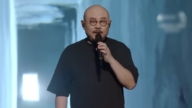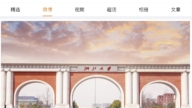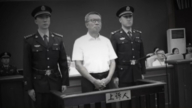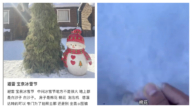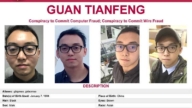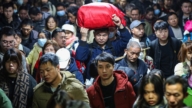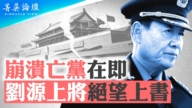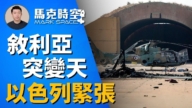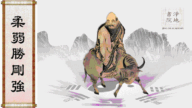【新唐人2013年09月06日讯】最近,中共总书记习近平在一次会议上强调,意识形态工作是一项非常重要的工作。随后,全中国掀起了网路言论大扫荡,各地以造谣传谣为由,抓捕了数千人。针对这场大规模的所谓打谣行动,中共喉舌纷纷发表文章阐述观点,一时间,网路出现了集体互掐的大混战。分析人士认为,习近平担心舆论失控,本来希望通过守住所谓的意识形态阵地来稳定政权,但中国目前左右派的争斗无法调和,内部分裂,他的愿望落空。
习近平在8月19号的中共宣传思想工作会议上提出,有关部门必须对意识形态工作“守土有责、守土负责、守土尽责”。他的话音一落,中共官场和喉舌就大举跟进,31个省委宣传部长齐声呐喊“亮剑”,各地公安部门则紧急动手抓人。
当天,网路红人“秦火火”、“立二拆四”等人被警方以网络“造谣”为由被逮捕。23号,网络大V薛蛮子以嫖娼为名遭到警方的行政拘留。短短几天内,中国各地以网络造谣、传谣为由抓捕了数千人。
北京时政观察人士华颇:“中共的各级官员还有地方政府,对网络都充满了刻骨的仇恨,对网络的仇恨由来已久,所以他们领到习近平的‘尚方宝剑’之后,就进行了滥捕滥抓,所以大家看到抓捕了不少人。”
针对这一场大规模的打谣行动,中共喉舌媒体纷纷发表文章进行评论,一时间,网路上出现了党媒集体互咬,观点各异的激烈大混战。
《人民日报》8月29号发表文章形容网络如洪水猛兽﹔9月2号《学习时报》发出警告,防民之口甚于防川﹔《红旗文稿》则表示,要对网路出重拳﹔《北京日报》要对群众亮剑,《华声在线》担心堵塞言路﹔《法制日报》说必须严打,《光明日报》坚持要依靠网民。
华颇:“中共感觉到网路对它们的执政根基造成了重大冲击,已经忧心到要亡党的危险了,所以对网络意识形态要下重手进行整顿。中共的两大系统,一个是政法系统,一个是宣传系统,一个是动手,一个是动嘴,所以对网路网民进行了一种大规模扫荡。”
9月2号《新华网》发表文章说:打击“网络谣言”要防范执行跑偏﹔4号《人民网》又转口风说:遏制网络活力违背中央精神和时代潮流。同一天,《解放军报》有文章宣称,要夺取网络舆论斗争的主动权,跟“看不见的敌人”过招。
华颇:“这方面也有违习近平的本意的,习近平的本意要稳定,但是适得其反,反而引起了社会一些大的波动,大混乱,没有达到他想要稳定的目的,所以媒体出现了互呛,造成了公众党媒之间的顶牛的现象。”
时事评论员刑天行,从中共媒体大混战可以看出,中共高层公开分裂,左右纷争严重激化。
时事评论员刑天行:“表现在互联网上,它在民意上就是希望能够推动中国的自由民主的这样一个发展,但是,实际从目前的情况来看,局势比较严峻,那就体现了中共一贯的打击言论自由,搞一言堂邪恶的这一面。”
不过,中共的打谣行动并没有吓倒网民,他们以各种方式进行反击,大力揭露。如,“亩产万斤”等官谣,更有网民写段子说:如果网上早打谣,杨达才笑死不坐牢﹔如果早把大V抓,雷政富把红霞娶回家﹔如果打谣提前50天,上海集体嫖娼官员继续当法官。
采访编辑/李韵 后制/李勇
China’s Media War on “Online Rumours"
Recently, the Chinese Communist Party (CCP) leader,
Xi Jinping stressed ideological work is very important.
Subsequently, the authorities started
nationwide control of the internet.
Several thousand netizens were arrested on
allegations of creating and spreading rumors.
State-controlled media have published
articles to comment against their ideas.
Suddenly, the internet has become a chaotic battlefield.
Analysts said that Xi Jinping is worried
that public opinion is out of control.
Xi initially hoped to hold the
ideology, to stabilize the regime.
However, the leftists and rightists are currently in conflict,
and they are internally separated, thus Xi’s hope is in vain.
On August 19, Xi Jinping stressed in a propaganda
work meeting that any relevant departments
must be responsible for their ideological work.
Officials and media immediately followed up Xi’s order,
and thirty one provincial party secretaries vowed to act.
Public security officers in each
city started to arrest people.
That day, internet celebrity Qin Huohuo,
Li’er Caisi and others, were arrested on
allegations of creating rumors online.
On August 23, big V (V refers to verified user) Xue Manzi
was detained on the allegation of hiring prostitutes.
Within several days, thousands people were detained
for allegations of creating rumors on the internet.
Hua Po, Beijing current affairs observer: “The
CCP officials at every level hate the internet.
They have accumulated hatred for a long time.
Once they received Xi’s order, they began to arrest
activists, and have arrested many people so far."
In this large-scale suppression, CCP state media started
a furious internal battle, arguing with different opinions.
On August 29, People’s Daily said that the internet is
like a dangerous flood, and a scourge on the CCP.
On September 2, fought back, stating
control of people’s free speech is more harmful than
the potential flood damage the internet could cause.
Hongqiwengao said that internet
controls must be severely tightened.
Beijing Daily suggested to act and arrest people.
Online Huasheng worried that
freedom of speech will be blocked.
Legal Daily said there must be crackdown.
Guangming Daily insisted to rely on netizens.
Hua Po: “The CCP felt that the internet has
greatly shaken its power and may bring collapse.
Thus a decision was made
to enforce the CCP ideology.
The CCP’s two major ministries are the Politics
and Law Committee and Propaganda Ministry.
One is good at “action", and the other is good at “talk".
Together, they implemented large
scale sweeping of the internet."
On September 2, Xinhua news said that cracking
down on online rumors must not go off track.
On September 4, People’s Daily website changed its stance.
It stated that control of the internet is against
the central regime’s spirit and it’s new trend.
The PLA newspaper suggested seizing the initiative
of struggle on the internet, fighting an “invisible enemy".
Hua Po: “The outcome is against Xi’s initial goal.
Xi originally sought stability, but
it went in the opposite direction.
It aroused social unrest and chaos.
It didn’t achieve the goal of stability.
Thus the media appeared
to fight against each other."
Xing Tianxing, current affairs commentator said
that this media chaos shows the high level CCP
is splitting up, and infighting is intensifying.
Xing Tianxing: “It has manifested on the internet.
They hope public opinion can push forward democracy,
however, the actual situation has become serious.
It reflects that the CCP’s common practice is to
suppress freedom of expression and individualistic talk."
However, suppression of “online
rumors" didn’t intimidate netizens.
They have used various ways to fight back,
even vigorously exposing more corruption.
For example, officials falsified information about farm
production, stating “per mu exceeded ten thousand kilos".
A netizen posted: “If the online crackdown
had started earlier, the “smiling official"
Yang Dacai would have not been jailed.
If big V had been arrested earlier, the sex
tape scandal official Lei Zhengfu would
have married Hongxia and taken her home.
If the crackdown on online rumors started 50 days earlier,
Shanghai judges who hired prostitutes would still be judges.




